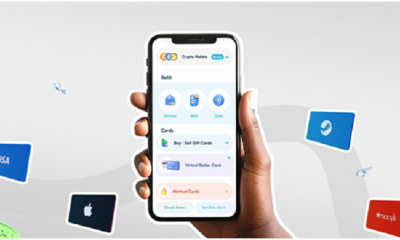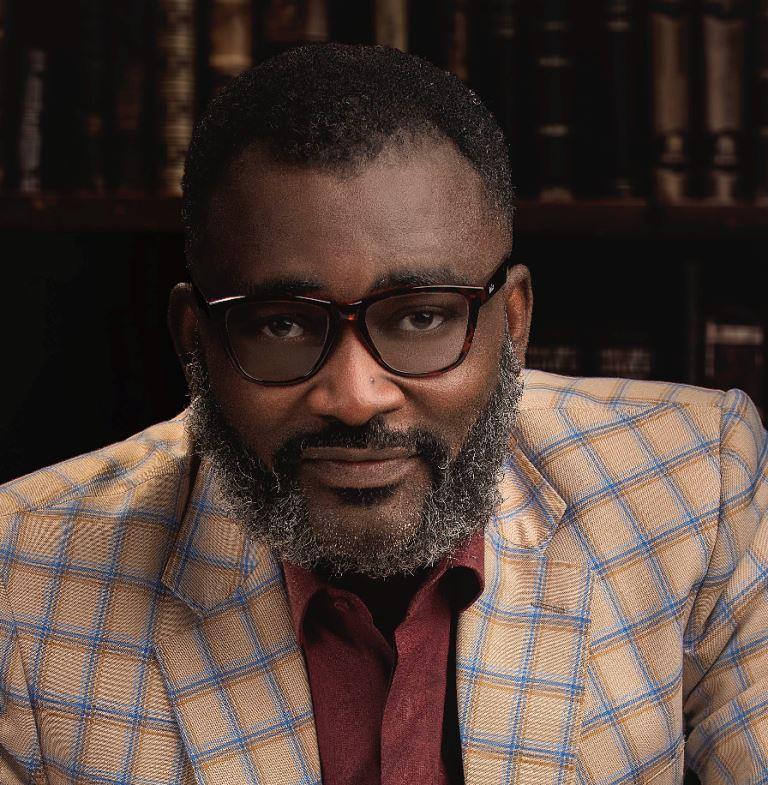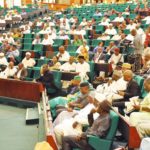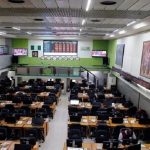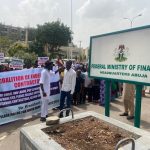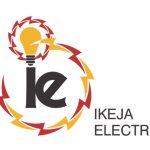Technology
West Africa Tour Excites Facebook’s Chris Cox
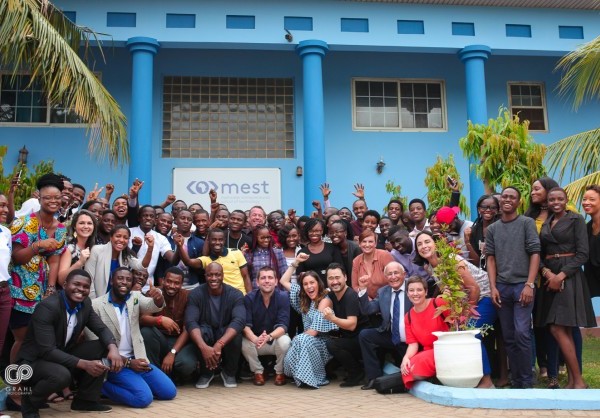
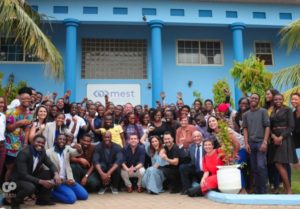
By Dipo Olowookere
Chief Product Officer at Facebook, Mr Chris Cox, says he would be taking feedback and inspiration from the developer and content creator communities back to California following his visits to Nigeria, Ghana and Senegal recently.
Mr Cox was in West Africa to find out how the region’s creatives, developers and entrepreneurs were using Facebook and Instagram to bring their passions to life.
Mr Chris said: “It’s been an inspiring week meeting with some of the top artists, publishers, entrepreneurs, developers, and social media stars across the region.
“This is a region that creates some of the most interesting cultures in the world – from food, to fashion, to music, to art.
“They are at the leading edge of using mobile technology to build communities in their cities, countries, and around the region, and in solving local problems with local solutions.
“We left inspired, and with insights on the real challenges we have to improve our services — from internet connectivity to more regional support and tools.”
Mr Cox started his trip on a high by seeing Femi Kuti live on stage at the New Afrika Shrine in Lagos. The accomplished pianist was invited to play live on stage with Femi, an experience he said he will never forget.
“It was an honour to play live with one of my musical heroes. The Shrine is one of the great institutions in music history and in the political history of the region. It was also the first time a concert has been live broadcast on Facebook from The Shrine.
“Femi’s team was inspired by how many folks around the city, the region, and the world wanted to tune in, and we were too.
“We were surprised by how many Nigerians told us how exciting it was to see a concert from there. We think there’s a great opportunity for Live to give the whole world a window into some of these gems of local culture,” he said.
Whilst he was in Nigeria, he spoke at Social Media Week Lagos, the region’s premier new media and social media conference, where he highlighted Nigeria’s status as a hub for innovation and creativity because of its fast-growing mobile technology sector and its vibrant film and music industries.
He focused on how the world is moving to digital video, with formats such as virtual reality, Live video broadcast and 360 video giving people new ways to tell their stories.
Mr Cox then moved to Ghana where he visited the Meltwater Entrepreneurial School of Technology (MEST) in Accra, Ghana.
Meltwater is the premiere start-up-school and incubator in Ghana, bringing in some of the top aspiring tech entrepreneurs and engineers from around the continent to develop their businesses.
During his visit, Mr Cox loved meeting the team from Asoriba, an already hugely successful software for church communities, which is extremely important and central in Ghana and Nigeria.
He talked with the founders of Asorbia about how technology can be used to strengthen communities.
Later in Ghana, he witnessed the force of Ghana’s creative talent in an event at ANO Gallery, which was co-hosted by and ANO Gallery and Bless The Mic. During the event, some of Ghana’s top talent spoke about how they have used technology to tell their stories and grow their audiences.
Top Ghanaian musician M.anifest said, “We have some really compelling stories to share in Ghana, not just with other Ghanaians but with audiences around the world. The remarkable thing about Facebook is that it gives us cutting-edge and exciting new ways to connect with people and to tell our stories ourselves and in our own way.”
His last stop of the trip was Senegal where he attended a ‘Stories of Senegal’ event, designed to lift the lid on the stories, cultures and talent in Senegal.
During the event, top Dakar chef Corinne Erambert of Les Atelier De Corrine gave Mr Cox a crash course in local Senegalese cooking, teaching him how to make local dish ‘couscous rice’.
The event was live streamed on Facebook, so that people all over the world could see how to make a local delicacy.
Corinne Erambert of Les Atelier De Corrine said: “I founded my business ‘Les Atelier De Corrine’ three years ago.
“Since then I have used my blog, Facebook and Instagram to build a community of food lovers who come to my pages to see videos and photos of the new dishes I am trying out.
“I often give people recipes within my posts so that if people like the look of the food I make, they can try it out at home.”
For the final stop of his visit to West Africa, Mr Cox attended an event with local tech entrepreneurs where he took part in a discussion about building tech products in Francophone Africa.
“It was exciting and inspiring to see how technology is giving entrepreneurs and content creators across West Africa new opportunities to reach their audiences.
“I felt privileged to see how developers, content creators and entrepreneurs are using Facebook and Instagram to help solve local problems or tell local stories,” he said.
Technology
AI Legal Tech Firm Ivo Gets $55m for Contract Intelligence

By Dipo Olowookere
The sum of $55 million has been injected into an Artificial Intelligence (AI)-powered contract intelligence platform, Ivo, to support product development and scaling as the company deepens its reach across the hundreds of organizations that already rely on its product, including Uber, Shopify, Atlassian, Reddit, and Canva.
The Series B funding round comes after a year of substantial growth in product performance, customer adoption, and market traction to accelerate its mission of making contract intelligence available to every business.
Since its last funding round, Ivo has grown annual recurring revenue by 500 per cent, increased total customers by 134 per cent, and expanded adoption within the Fortune 500 by 250 per cent.
Business Post gathered that the latest funding support came from Blackbird, Costanoa Ventures, Uncork Capital, Fika Ventures, GD1 and Icehouse Ventures.
Ivo is purpose-built for in-house teams that need both reviews with surgical accuracy as well as visibility into their complete contract library.
The company’s AI-powered contract review solution, Ivo Review, allows users to complete reviews in a fraction of the time; customers report saving up to 75 per cent of the time that manual review would demand.
The product standardizes a company’s positions and precedents using playbooks built and implemented by lawyers. This means that every contract is reviewed accurately, consistently, and efficiently, critical for large and globally distributed teams.
“Our goal has always been to make interacting with contracts fast, accurate, and enjoyable. Every key relationship in a business is defined by an agreement, yet most organizations struggle to extract the insights inside them.
“Our focus is to give in-house teams a trustworthy solution that helps them work faster and gives them visibility into their contracts that was previously impossible,” the chief executive and co-founder of Ivo, Min-Kyu Jung, stated.
Also commenting, a Principal at Blackbird, Mr James Palmer, said, “In-house legal teams demand products that are deeply accurate and aligned to how they work. The most sophisticated teams are incredibly selective about the tools they trust.
“Ivo’s traction with some of the world’s best companies shows it consistently exceeds that bar. With exceptional product execution and an uncompromising quality bar, we believe Ivo is defining and leading the category.”
The Senior Manager for Contract Operations at Uber, Ms Kate Gardner, said, “Uber selected Ivo because it was intuitive to use, demonstrated a high level of accuracy, could work in multiple languages, and met its confidentiality requirements. Furthermore, the Ivo team was highly responsive to Uber’s needs.”
Technology
Nigeria Leads in AI for Learning, Entrepreneurship—Google
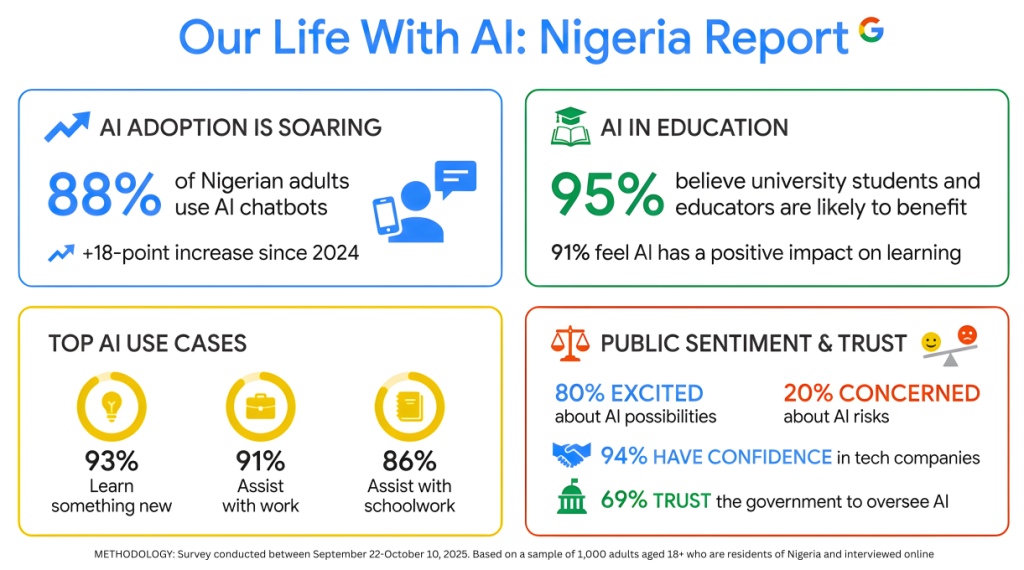
By Modupe Gbadeyanka
A new report released by global tech giant, Google, in collaboration with Ipsos, has revealed that Nigeria is writing the playbook on Artificial Intelligence (AI) as it leads in AI for learning and entrepreneurship.
In the study titled Our Life with AI: Helpfulness in the hands of more people, it was shown that Nigerians are using AI tools for everything from education to entrepreneurship at a remarkable rate, showing immense optimism for the technology’s future.
It was disclosed that about 88 per cent of Nigerian adults have used an AI chatbot, a huge 18-point jump from 2024, placing the West African country well ahead of the global average of 62 per cent.
It was also found out that while the top use for AI globally has shifted to learning, Nigerians are taking it a step further, using AI as a powerful tool for personal and professional development.
A staggering 93 per cent of Nigerians use AI to learn or understand complex topics, compared to 74 per cent globally, with 91 per cent using the tool to assist them with their work.
In addition, the research observed that 80 per cent of Nigerians are using AI to explore a new business or career change—nearly double the global average of 42 per cent.
Nigerians have overwhelmingly positive feelings about AI’s role in the classroom and beyond, seeing it as a game-changer for education, with 91 per cent feeling AI is having a positive impact on how we learn and access information versus 65 per cent globally.
The report showed that 95 per cent believe university students and educators are likely to benefit from AI, as 80 per cent of Nigerians are more excited about the possibilities of AI, versus just 20 per cent who are more concerned. Globally, the split is much closer at 53 per cent excited and 46 per cent concerned).
Commenting on the findings, the Communications and Public Affairs Manager for Google in West Africa, Taiwo Kola-Ogunlade, said, “It’s inspiring to see how Nigerians are creatively and purposefully using AI to unlock new opportunities for learning, growth, and economic empowerment.
“This report doesn’t just show high adoption rates; it tells the story of a nation that is actively shaping its future with technology, using AI as a tool to accelerate progress and achieve its ambitions. We’re committed to ensuring that AI remains a helpful and accessible tool for everyone.”
Business Post gathered that the research was conducted by Ipsos between September 22 and October 10, 2025, on behalf of Google.
For this survey, a sample of roughly 1,000 adults aged 18+ who are residents of Nigeria and were interviewed online, representing the country’s online population.
Technology
NCC Grants Three Satellite Licences to Boost Broadband Services
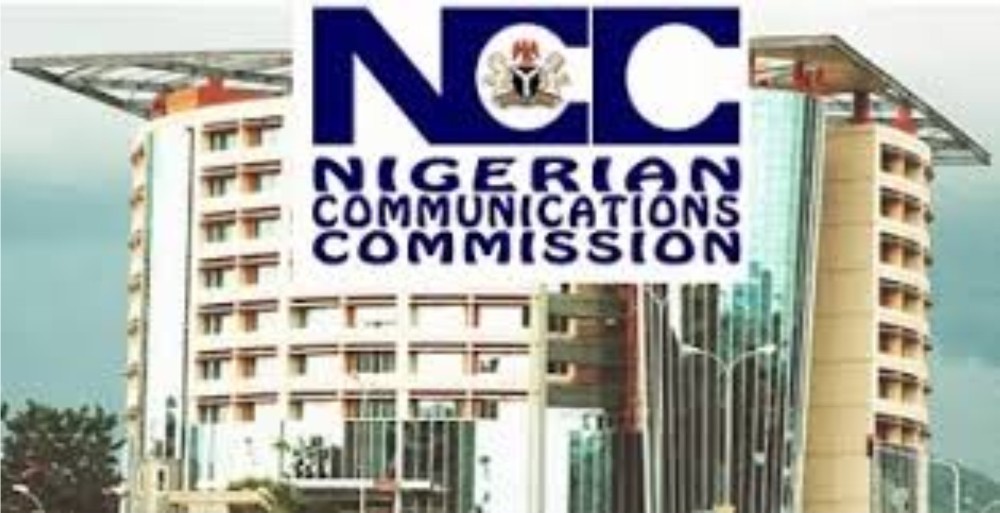
By Adedapo Adesanya
The Nigerian Communications Commission (NCC) has licensed three additional global internet service providers, Amazon’s Project Kuiper, BeetleSat-1, and and Germany-based Satelio IoT Services, as part of efforts to strengthen internet connectivity via satellite and to boost competition among existing internet service providers in the country.
Amazon Leo, formerly Project Kuiper, is Amazon’s Low Earth Orbit (LEO) satellite network, designed to provide fast, reliable internet to customers and communities beyond the reach of existing networks, while BeetleSat (formerly NSLComm) is an international company with strong ties to both Israel and Spain, and its corporate structure involves multiple countries, building a Low Earth Orbit (LEO) constellation of 250 satellites to provide high-throughput, low-latency, satellite internet, cellular backhaul, and mobility services globally, and Satelio IoT was approved for its planned 491-satellite IoT system, though only one satellite is currently in orbit.
NCC granted the global internet operators seven-year licences to each to operate in Nigeria from February 28, 2026, to February 28, 2033.
These operators were granted Ka-Band for their frequency band operations, and the licence is renewable after the seven years expiration, according to the regulator.
The NCC’s landing permit authorises Project Kuiper to operate its space segment in Nigeria as part of a global constellation of up to 3,236 satellites.
According to the NCC, the approval aligns with global best practices and reflects Nigeria’s willingness to open its satellite communications market to next-generation broadband providers.
The permit positions Project Kuiper to provide satellite internet services over Nigerian territory and sets the stage for intensified competition with Starlink, currently the most visible Low-Earth Orbit (LEO) satellite internet provider in the country.
The permit also gives Amazon LEO and BeetleSat-1, the legal certainty to invest in ground infrastructure, local partnerships, and enterprise contracts, while giving Nigeria a wider market opportunity to play in space internet service delivery, where Starlink currently operates.
Amazon’s Kuiper will offer three categories of satellite services in Nigeria: Fixed Satellite Service (FSS), Mobile Satellite Service (MSS), and Earth Stations at Sea (ESAS).
FSS enables broadband connectivity between satellites and fixed ground stations, such as homes, enterprises, telecom base stations, and government facilities. This is the core service behind satellite home internet and enterprise backhaul; MSS, by contrast, is designed for mobility and resilience; and ESIM extends high-speed satellite broadband to moving platforms, including aircraft, ships, trains, and vehicles.
These systems rely on sophisticated antennas that can track satellites in real time while in motion, making them critical for aviation and maritime connectivity as well as logistics and transport sectors.
BeetleSat was founded in Israel, where its groundbreaking antenna technology was developed and supported by the Israel Space Agency.
In 2021, it formed a strategic alliance with the Spanish technology group Arquimea, which is now BeetleSat’s largest shareholder and main industrial partner.
-

 Feature/OPED6 years ago
Feature/OPED6 years agoDavos was Different this year
-
Travel/Tourism9 years ago
Lagos Seals Western Lodge Hotel In Ikorodu
-

 Showbiz3 years ago
Showbiz3 years agoEstranged Lover Releases Videos of Empress Njamah Bathing
-

 Banking8 years ago
Banking8 years agoSort Codes of GTBank Branches in Nigeria
-

 Economy3 years ago
Economy3 years agoSubsidy Removal: CNG at N130 Per Litre Cheaper Than Petrol—IPMAN
-

 Banking3 years ago
Banking3 years agoSort Codes of UBA Branches in Nigeria
-

 Banking3 years ago
Banking3 years agoFirst Bank Announces Planned Downtime
-

 Sports3 years ago
Sports3 years agoHighest Paid Nigerian Footballer – How Much Do Nigerian Footballers Earn



